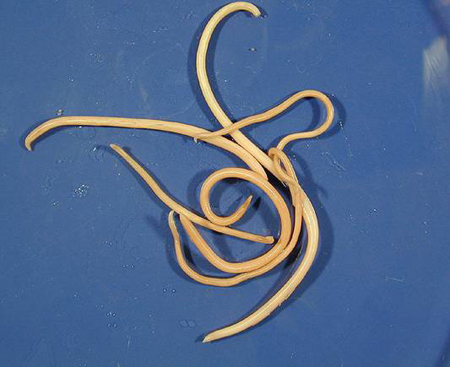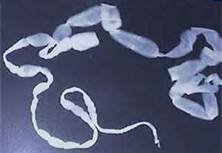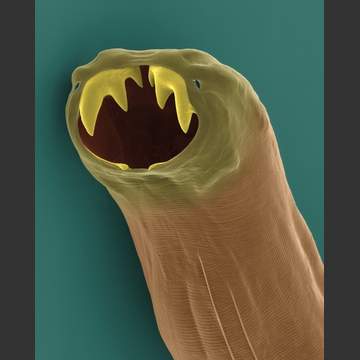Controlling Gastrointestinal Worms is important for your pet’s health. Worms such as Hookworm and Whipworm can cause bowel damage and infestations can lead to serious illness, suffering and even death.
Certain worms have life cycle stages that can be transmitted to people (especially children), causing severe health problems.
What are intestinal worms?
Intestinal worms are parasites which live in the gastrointestinal tracts of animals. The most common species of intestinal worms seen in small animals include:
- Roundworm
- Flea Tapeworm
- Hydatid Tapeworm
- Hookworm
- Whipworm
Can worms infect dogs and cats?
Both dogs and cats can carry intestinal worms. Dogs are most commonly affected by Roundworms, Tapeworms, Hookworms, and Whipworms, whilst cats can be affected by Roundworm, Flea Tapeworm and Hookworm.
How does my pet catch worms?
Cats and dogs can catch worms through several mechanisms, including:
- Ingestion of other dogs’ faeces.
- Through contact with infected soil.
- By eating wildlife or offal from farm livestock.
- Through accidental ingestion of fleas when grooming.
- Through catching and eating birds and rodents.
Almost all puppies and kittens are affected by roundworms before birth or immediately after birth through the mother’s milk so it is important to start de-worming at a young age.
How can I tell if my pet has worms?
Depending on which worm is present, symptoms in cats and dogs can include diarrhoea, vomiting, a pot-bellied appearance, lethargy, ravenous or decreased appetite, scooting (i.e. dragging the bottom along the floor), and stunted growth. If left untreated ,intestinal worms can cause numerous health problems including respiratory disease, stunted growth, anaemia, and blood loss. In some instances they can be fatal.
Are worms contagious to people?
Some intestinal worms including roundworm, hookworm, flea tapeworm and hydatid tapeworm can be passed on to people. Children in particular are at risk as their immune systems are less developed and they are curious, like to play in the dirt, and will often put their hands in their mouths after patting or handling animals. Children are also more likely to let animals lick them around the face and mouth. Symptoms of infection with worms are different in humans to dogs, but can be equally as serious.
Intestinal worms can affect people in the following ways.

Roundworm 
Flea tapeworm 
Hydatid tapeworm 
Hookworm
Roundworm: Roundworm larvae can migrate through abdominal organs causing varying problems, and in some cases reach the eyes, causing blindness, or the brain, causing brain damage.
Flea Tapeworm: Tapeworm infection an result in diarrhoea and restlessness in people.
Hydatid Tapeworm: Hydatid’s are particularly nasty parasites. In humans they migratethrough the bloodstream and form cysts on organs such as the liver, kidneys, lungs and brain. These cysts can cause organ damage and potentially be lethal if the cysts burst. The cysts need to be surgically removed and can cause significant health concerns depending on their location. Hydatid tapeworm infection is more common in animals which frequent farm areas or eat raw diets as Hydatid tapeworm is spread to dogs by ingesting offal from sheep and wildlife, however there have been cases in recent years seen in city areas.
Hookworm: Hookworm Larvae can migrate through the skin leaving infected humans with red, itchy, and inflamed areas of skin.
Tips for keeping your family safe
- Worm all cats and dogs in the household as per the above schedule.
- Practice good hygiene – wash hands on a regular basis, especially after handing pets, changing litter trays, gardening, before eating, etc.
- Pay close attention to children as they are at much higher risk of being exposed to intestinal worms.
- Do not allow pets to lick you or your children around the face.
- Always wear shoes when outside.
How can I treat/prevent my pet from getting worms?
Our Veterinary recommendation is that puppies and kittens should be wormed FORTNIGHTLY until they are 3 months of age, then MONTHLY until they are 6 months of age, and then EVERY 3 MONTHS ongoing throughout the pet’s life. If you suspect your pet may have worms, seek veterinary advice to determine the best treatment plan for your pet.
A variety of suitable veterinary products are available to treat your pet for worms on a regular basis. The first step is often seeking veterinary advice to determine which product is most suitable for you and your pet.
Worming preparations recommended by Mosman Vet are carefully selected for convenience and safety. They include:
- Monthly products that also prevent Heartworm
- Drops on the back of the neck that also help with Flea control (very handy for cats)
- 3-monthly tasty chews that your pet will love
For more information on intestinal worms and the treatments available for your pet, please call and speak with one of our vets or nurses on 02 9960 2856.
And remember, in your pet’s preventative health program, don’t forget to include:


